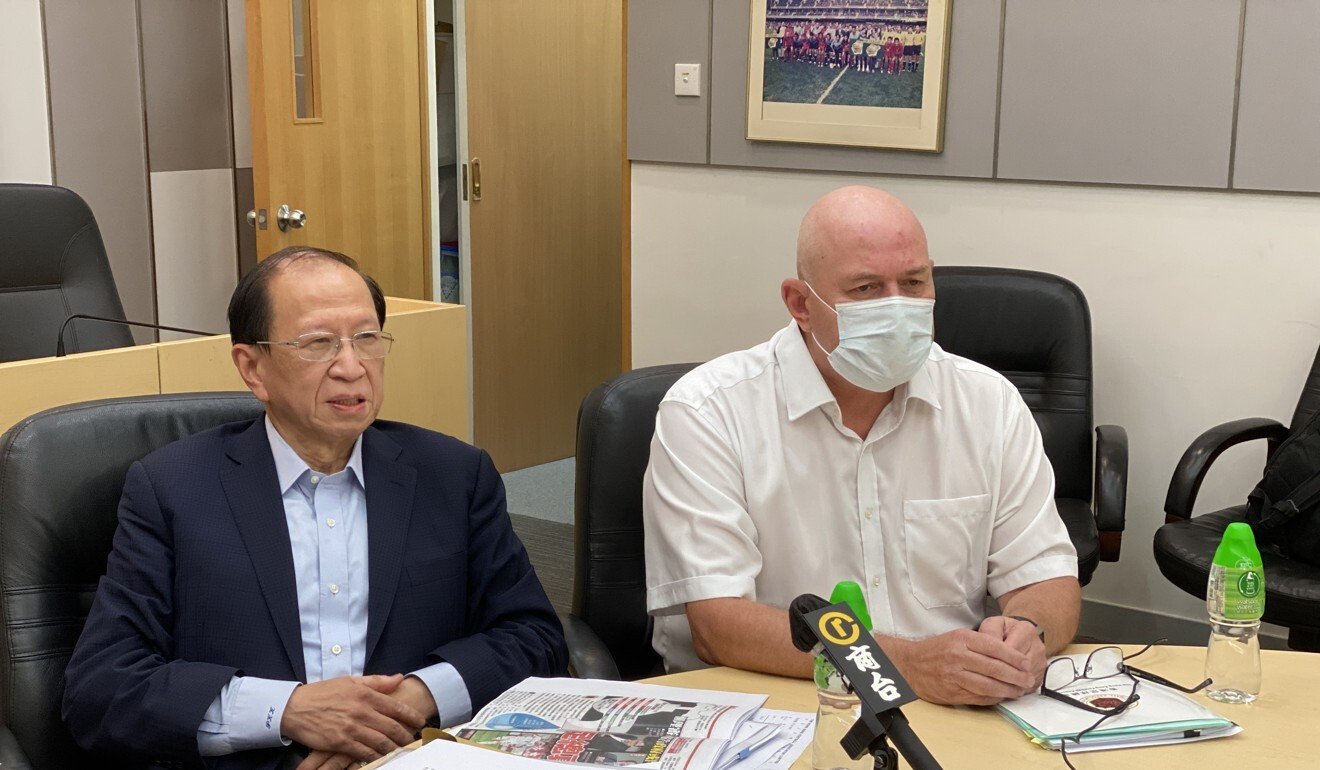
Hong Kong football: should government continue to fund HKFA after Legco’s damning appraisal?
- Government to soon decide on a new five-year plan, with the commitment of an annual HK$25 million subvention to local football
- Audit’s report criticises HKFA for making little progress since inception of Project Phoenix in 2011
There are a number of reasons for the Hong Kong government to stop financing football, with the existing deal set to cease in two weeks. The three Legislative Council’s Public Accounts Committee hearings this month gave local football fans a lot to digest.
The hearings found that an organisation which spends HK$40 million a year of public money through the government’s Leisure and Cultural Services Department and the Home Affairs Bureau’s Arts and Sport Development Fund (ASDF) has failed in many areas, not only in its governance but also in its human resources management, administration and operations.
However, there is still strong reason to continue the funding, unless, of course, you want to see Hong Kong football die overnight.
The unfortunate, stark reality is that if there is no financial support for the new five-year plan, the immediate result will be the loss of jobs for 30 staff members, including head coach Mixu Paatelainen – all are funded by subvention through the ASDF, unless the HKFA can identify other sources of funding, which nobody believes they can.

There will be nobody left to care of the grass-roots development programmes either, as the Hong Kong Jockey Club is unlikely to continue its financial support of the youth programmes – to the tune of HK$25 million a year – if the government is no longer supporting Hong Kong football.
HKFA slammed by Legislative Council for its ‘poor governance’
Hong Kong play their remaining 2022 World Cup qualifying matches in October and November, all pushed back from earlier in the year because of the coronavirus pandemic. Although the chances of beating the three Middle Eastern powerhouses – Iran, Iraq and Bahrain – to gain a path to the next round of regional qualifying is highly unlikely, Hong Kong are obliged to still attempt mission impossible.
You need a manager and his back-room staff to prepare players for those matches, unless you can find quality replacements in a short window and they are prepared to do the job for free.
More importantly, you need to take care of the long-term development of the game in the city and without the requisite resources, little will be achieved.

You can find systemic problems with any organisation if you look closely enough, like the way the government’s Audit Commission conducted these internal audit exercises.
The HKFA has watched another chief executive leave in short succession and it needs to identify the right replacement to fix the governance defects the audit identified.
Chairman Pui Kwan-kay and his board of directors should give a lot of thought as to what candidate they prefer. An executive with a strong administration background is a must, and it shouldn’t be too difficult to find one in a business-propelled city like Hong Kong.
At the same time, we have to remember we are talking about someone who needs to lead the game. Someone who knows football well enough that they can lay the foundations for a profound overhaul of the domestic football league and provide the necessities for a strong Hong Kong representative team that can at least match our regional counterparts.
The Legislative Council’s public hearings placed too much emphasis on the governance problems of the Football Association, but they seemed to forget the association’s primarily objective is to develop the sport at all levels. No one would disagree proper governance is important, but Hong Kong football needs someone capable of more than that.

There have been three chief executives since the introduction of Project Phoenix in 2011, each earning big bucks, and each from overseas. They earned more even than the government officials who oversaw them at the Home Affairs Bureau. Apart from Mark Sutcliffe, the two others were short-lived appointments. Now, with the new five-year plan set to be put in place, it’s time to give local candidates the opportunity as they know the picture well and need less time to adapt to its environment.
Soccer boss Brian Leung says Project Phoenix is ready to take off in earnest
The association also has major issues in the Premier League with Tai Po, the 2019 league champions, and fellow district club Yuen Long already withdrawing for next season. The major reason is a lack of money, and a lack of people who are willing to invest in Hong Kong football. Can the government help in the new five-year plan?

Of course, the government is justified in refusing to bail out individual clubs because they are private entities and can be profit-making if they are run properly.
But government money could be spent on getting people to help the clubs, and supporting them in marketing so they can grow and generate profit eventually. These people could still work at the association, just as other subvented staff do, but their main duty would be to help individual clubs. The government could also provide individual clubs with subsidies when hiring government facilities for training and competitions.
One of the major drawbacks of Project Phoenix and the following Five-Year Strategic Plan was the lack of support provided to the clubs, which also explains why these plans failed to gain wide support from the football community. Perhaps it’s time to change tack with a new plan. Third time lucky, hopefully.

